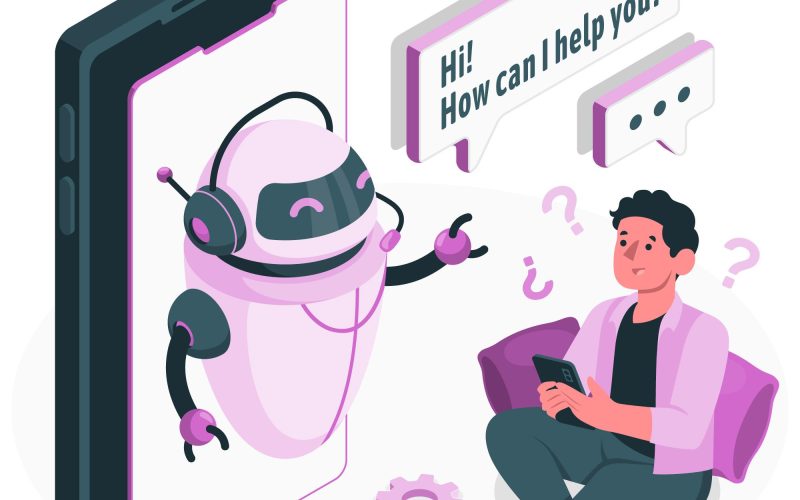In the vast landscape of artificial intelligence, a new era has dawned—a time when chatbots, the intelligent conversational agents, have emerged as powerful entities shaping our digital interactions. With their ability to understand human language, provide instant responses, and deliver personalized experiences, chatbots have become an integral part of our daily lives, revolutionizing industries and redefining the boundaries of human-machine interaction.
Chatbots, powered by sophisticated natural language processing algorithms and machine learning techniques, have transcended their rudimentary beginnings to become sophisticated virtual assistants. These AI companions are designed to engage users in seamless conversations, catering to their needs, answering queries, and even anticipating their desires. Through continuous learning and adaptation, chatbots have become adept at understanding context, grasping nuances, and delivering meaningful responses.
The rise of chatbots can be attributed to a convergence of factors that have propelled them into the mainstream. Advances in AI research and technology have unlocked the potential for chatbots to mimic human-like conversations with astonishing accuracy. Machine learning algorithms have become more efficient at processing vast amounts of data, enabling chatbots to learn from user interactions and refine their responses over time.
The proliferation of messaging platforms and social media networks has also played a significant role in the ascent of chatbots. With billions of people communicating through these channels, businesses and organizations have recognized the opportunity to engage with their audience on a personal level. By integrating chatbots into these platforms, companies can offer immediate customer support, deliver personalized recommendations, and even facilitate transactions without requiring users to switch to separate apps or websites.
Industries across the board have embraced chatbots as a means to enhance customer experiences, streamline processes, and improve operational efficiency. In the realm of customer service, chatbots have become invaluable assets, handling routine inquiries and providing 24/7 support. By automating these interactions, businesses can reduce response times, increase customer satisfaction, and free up human agents to focus on more complex issues.
The e-commerce sector has witnessed the transformative impact of chatbots on the customer journey. From virtual shopping assistants that offer personalized product recommendations to chatbots that facilitate seamless transactions, these AI companions have revolutionized the way we shop online. By analyzing user preferences and purchase history, chatbots can suggest tailored products, address customer queries, and guide them through the purchasing process, resulting in higher conversion rates and improved customer retention.
The healthcare industry has also embraced chatbots as valuable tools for providing accessible and efficient care. Medical chatbots can triage patients, provide initial assessments based on symptoms, and offer relevant healthcare information. These AI-powered assistants can alleviate the burden on healthcare professionals, reduce waiting times, and provide timely guidance, especially in non-emergency situations. Moreover, chatbots have the potential to extend medical services to underserved areas, where access to healthcare is limited.
Education is another sector witnessing the transformative potential of chatbots. Intelligent tutoring systems and educational chatbots are revolutionizing the way students learn, providing personalized assistance, interactive lessons, and instant feedback. These virtual mentors can adapt to individual learning styles, offer additional resources, and address students’ queries in real-time, fostering a more engaging and personalized learning experience.
As chatbots continue to evolve, the future holds even more promise. Advances in natural language understanding, sentiment analysis, and emotional intelligence will enable chatbots to understand human emotions and respond with empathy. Integration with emerging technologies like virtual reality and augmented reality will further enhance the immersive nature of chatbot interactions, creating more engaging and realistic experiences.
However, with great power comes great responsibility. Ethical considerations surrounding chatbots, such as data privacy, transparency, and the potential for algorithmic biases, must be carefully addressed.












